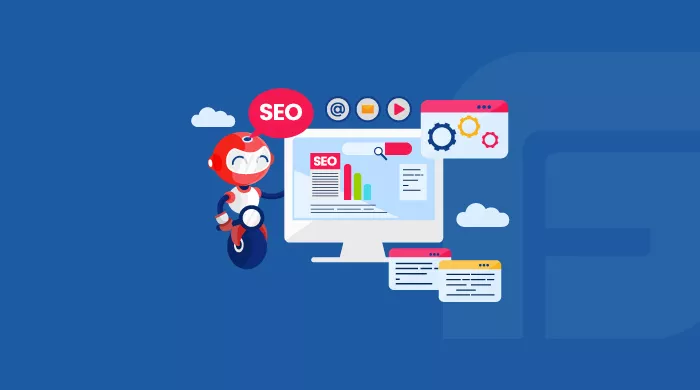Today, customers visit websites to check the authenticity of businesses, to buy products, to seek information, to be a part of any community, to watch videos for knowledge or entertainment, read blogs, or simply to contact the businesses. In B2B marketing, a website is a more professional way to connect with clients. A website displays a legitimate business, an established business organization, a trustworthy group, and a credible proprietorship. A well-structured and beautifully designed website is a valuable asset for businesses. This underlines the importance of an ‘efficient website’ in the growth of a business. An article published in the Entrepreneur website noted that there was a jump of 35% in revenue of ESPN.com when they modified their website’s homepage. Customers are more inclined to believe a brand that has a professionally built website.
Earlier websites were built only by designers and programmers who used to write heavy codes to add graphics, texts, and other functionalities in a website. Today anyone with basic computer skills can make a professional website by using the website builders that requires zero technical coding skills —no wonder why businesses are often in search of the latest website builder software to build high-end websites. A website builder software is not an optional entity for your business but a necessary investment. Without a website builder, we have to code every page and post of the website and then test it on several browsers. In case of errors, we have to fix the codes again. This is a complicated process that can be done by programmers or coders only. Therefore, for a non-technical person, a website builder is a better option.
What is a Website Builder Software?
Website builder software provides tools, plugins, and templates, and a framework to build websites without the need for manual code editing.
A website builder software makes iteasy to:
- Create new landing pages for your website
- Create a website menu and pages
- Change themes, templates, fonts, text, images
- Integrate with external plugins to add functions
- Add posts, contact forms, videos, blogs to your website
Purpose of Website Builder Software:
The vendors, marketers, and the software engineers behind the creation of Website Builder software have a specific purpose in their minds. Their objective is to provide a platform and tools for the non-programmers to create their own website without the complicity of the website programming or backend processes. Website creation software is built, keeping the average non-technical users in mind who want to build and maintain websites without having to pay large sums of money to web-masters or web designers. Thus, free website builder software is very popular with small business owners, photographers, freelancers, consultants, bloggers, critics, academicians, coaching institutes, retail businesses, ecommerce retailers, etc.
What are the essential Elements of the Website Builder?
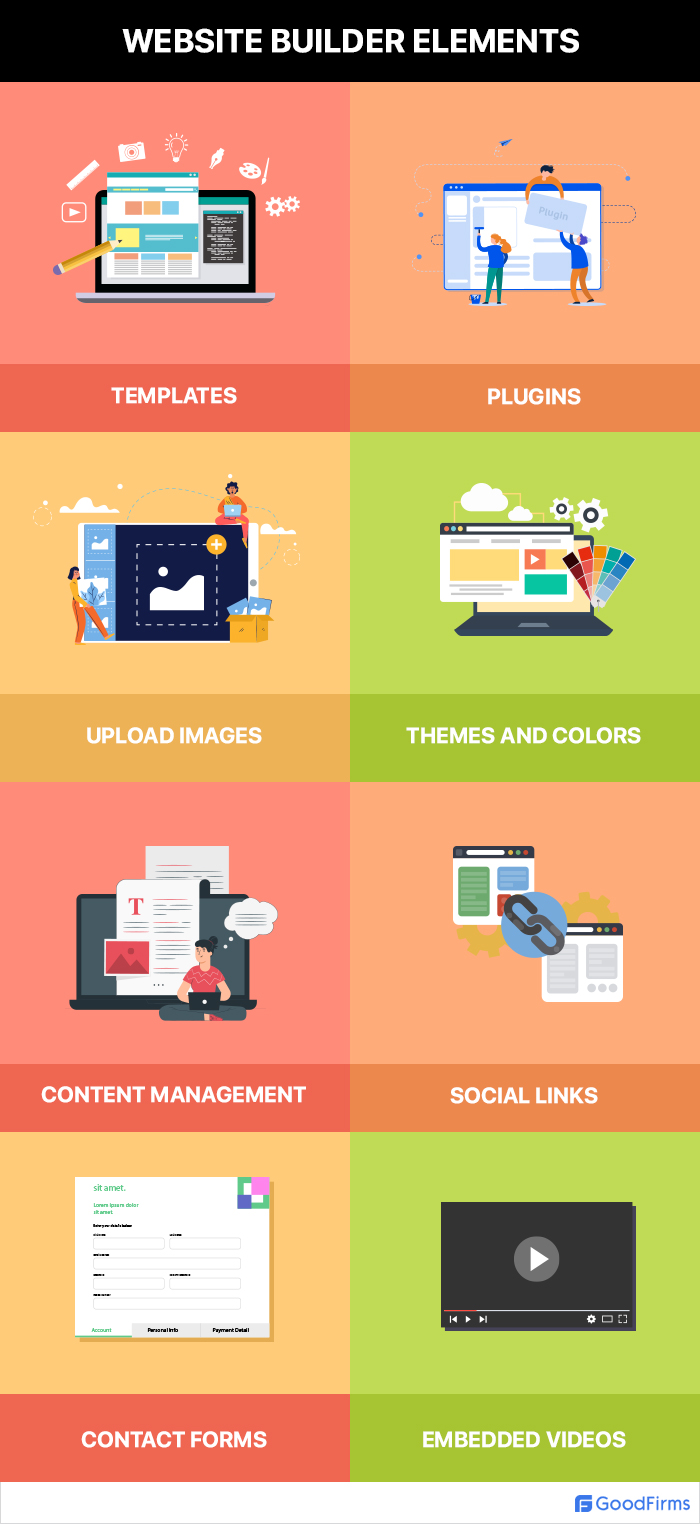
Below are the 8 essential elements of a Website builder software:
1. Templates
A template is a pre-built web page layout. Today responsivetemplates are used to design websites as they can respond to changes in the browser width. This makes them ideal for both desktop and mobile versions of the website.Responsive templates function better and are mobile-friendly.These templates adjust their layout with the change in screen resolution. They accommodate their fonts, heights, video size with screen elements. Freewebsite builders have responsive templates that are designed for optimal viewing and easy navigation.
2. Plugins
A plugin is an add-on tool that enhances the functionality of the website. It is an extra component that, when added to the existing website builder software, adds a specific function to the program. Different website builders have support for different plugins that add customization. However, one has to be careful before downloading plugins as they might have harmful, malicious files. Make sure you download only the recommended plugins by the website builder from the plugin's official website only.
3. Upload images
Website builders allow users to upload images and icons in various formats such as PNG, JPEG, SVG, etc. Users can replace the current template images. Users can change the images used in the background.
4. Themes and Colors
Themes are integral to website building. All website pages are built on a particular theme. Website builders offer various inbuilt themes for free. You can choose one that suits the format of your brand. Themes contain layouts, colors, columns, design elements, and typography. Themes are also responsible for website speeds, search engine optimization, and user experience. A poorly coded theme can slow your website.
5. Content management
Adding readable text to themes and other web pages built on the themes is essential to provide information about your website, such as your products, services, features, etc. This information or description helps your website visitors to analyze your products or services for making the buying decision. Text is important for keyword ranking. Updated, and original high-quality text content prompts search engines to crawl and index your website.
6. Social links
Today, all brands are dependent on social media for content engagement, greater public reach, and effective digital marketing. Putting social links/buttons at the header or footer or sidebars to let your visitors visit your social media presence can fetch you not only more customer engagement but also increased visibility in search engines. Website builders allow you to put quality social media links on your website.
7. Contact forms
Contact Form is a page or section on the website that allows visitors to contact the website owners. Contact Forms have fields to fill name, email or phone, message, etc. Once the contact form is submitted by the visitor, website owners get the required information to contact the visitor. Sometimes, the website builder software templates don't have an option for adding contact forms. In this case, users can add contact forms via an external plugin.
8. Embedded videos
Embedded videos let users run a video on their website using resources of third party video streaming services. Running videos with your own website may put a load on your bandwidth and slow down your site. Embedding mitigates this issue by hosting the video on servers of other websites.
What is the process of building websites using a website builder?
- Download a website builder or sign up for a cloud-based or online website builder service.
- Choose a theme for your website from the list of free themes available in the website builder software.
- Install the theme on the framework and then activate it by clicking on the 'Activate theme button.' The theme automatically installs the first page of the website.
- Start editing and customizing the theme and the front page sections by changing the text format, size, style, and margins to suit your needs.
- You can add sections or delete existing ones as per requirements. All sections work with a drag and drop functionality. Option to disable an unrequired section is available.
- You can also add prebuilt templates, blocks, or pages to your theme.
- If you require more functions such as adding 'forms' 'cookies,' 'SEO tools,' 'image optimizers' to your website page, then you can add extra plugins. Most website builder software provides a list of compatible plugins to work with their website builder.
- While building your website, you can take advantage of the WYSIWYG editor to see a preview of how your page will look.
What are the benefits of building websites using a website builder?
Eliminating manual code
Website builders are user-friendly software tools that don't require users to have coding knowledge. Website coding is automatically done in the backend while the users see only the direct changes taking place on their website page. Thus, small business owners, freelancers, bloggers, consultants, etc. can make their own websites without coding skills.
Build a website with a faster speed
Many website builders can get your website ready within a few hours. With copy-paste functionalities, prebuilt layouts, drag and drop templates, and pre-embed codes, you can make a website with lightning speed.
Professional designs:
The lack of coding requirements doesn’t mean a poorly constructed website or unprofessionally designed layout. The websites built using website builders have professional interface and design.
Easily indexed by search engines.
Most of the website builders have functionalities to make the website easily searchable by the search engines. The web pages made using such builders are optimized to get easily indexed by search engines.
Mobile Optimization
A majority of website visitors access sites via their mobile phones. Having a mobile-optimized website is essential to cater to the user experience of mobile users.
Real-time update
Users prefer a responsive and dynamic website that updates its content at regular intervals. With the website builder software, you can update your content anytime when you wish. You don't have to employ a website designer or wait for web-masters to update your website.
Reduced cost
By allowing you to construct your own website without hassle, the website builders reduce the costs of hiring web consultants and web designers.
Capitalize on the best business practices
The preexisting templates on the website builders are designed by professional website builders. Best business practices and current trends are incorporated while designing them. You can capitalize on the best practices without having to make anything from scratch.
Make site updates from anywhere
Website builders are useful when you want to make changes or install updates on your website. You can do it from anywhere with an internet connection.

The list of 8 best free and open source website builder software:
- openElement
- GrapesJS
- Silex
- Hugo
- Django
- Publii
- Joomla
- Subrion
Comparison Chart of 8 Best Free and Open Source Website Builder Software
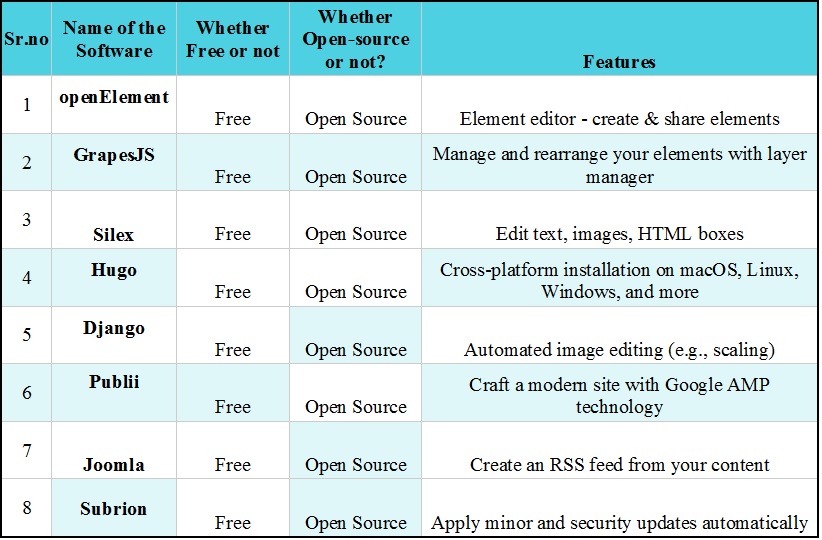
openElement is a free and open source website builder software that allows working on predefined templates or starting from scratch with HTML or CSS coding. It prefers Godaddy for publishing your site. Users can optimize their website for better user experience with openElement. It has a WYSIWYG interface. This open source website builder software allows users to insert web objects by drag and drop options.
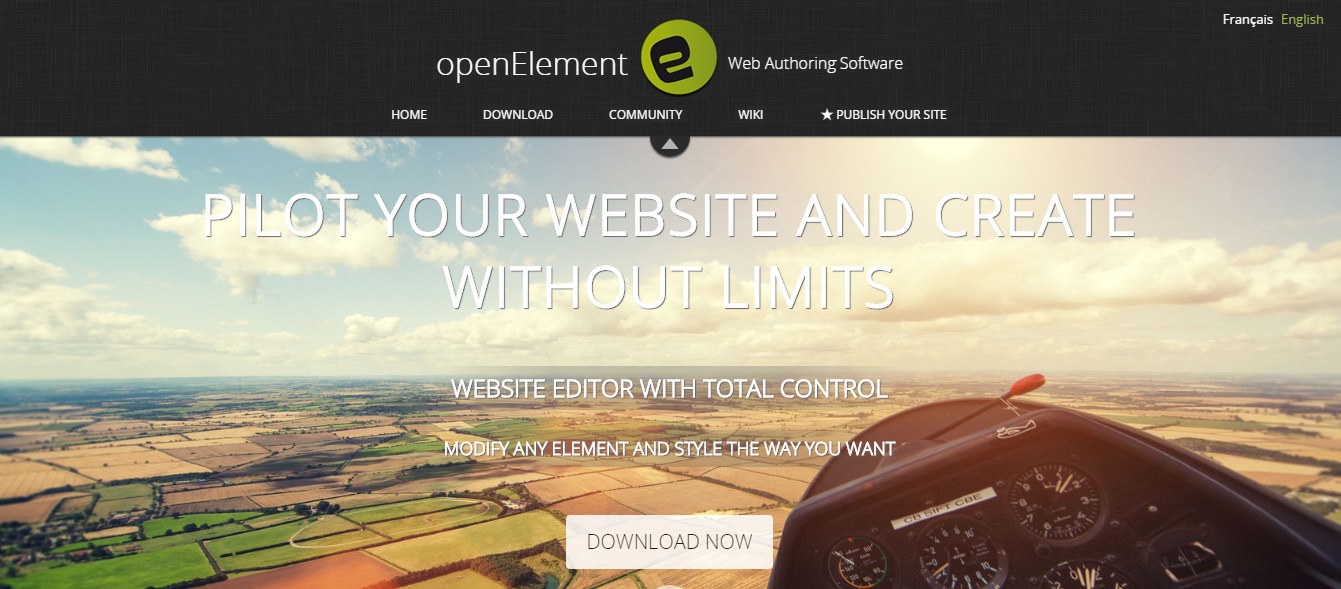
Features:
- Intuitive interface
- Databases
- Image and code optimization
- Everything is editable
- Managed code
- Page layers
- Cross-browser
- SEO integration
- Multilingual websites
- Responsive design
- Fully customizable CSS
- Element editor - create & share elements
- Easy integration of scripts
- Reusable styles and element pack
GrapesJS is a free and open-source website builder with a multi-purpose web builder framework. It helps to build HTML templates without coding knowledge. If you want to see a demo webpage using GrapesJS, then click here.
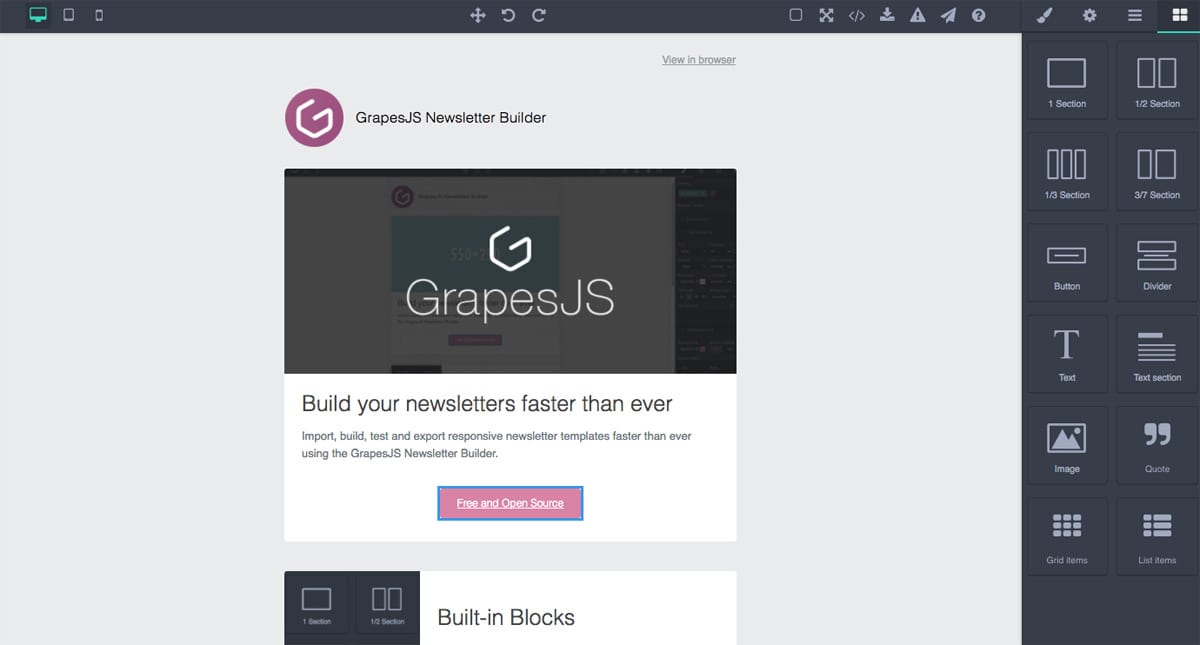
Features:
- Drag and Drop Built-in Blocks
- Responsive design
- Manage and rearrange your elements with layer manager
- Codes are available if users wish to code
- Implement storage interfaces to use inside the editor
- An asset to organize media files
- Various sections for adding maps, videos, links, quotes, etc.
- Various style formats
- Implement storage interfaces
- Edit Text, images, columns
- Add space between blocks
Silex is a free and open source website builder software. Silex allows the web files on the users' hard drive. Silex gains access to the files through Dropbox. If the files are on the users' server, then Silex can reach them via FTP. Once the site is ready, and optimized users can publish it online. Silex stores an HTML file on users' computers. All websites built through this open source website builder software are search-engine friendly. Silex can be installed on users' desktop and integrated to their infrastructure.

Features:
- Central configuration Manager
- Live web creation
- Iterating on design
- Drag-drop HTML elements
- Edit text, images, HTML boxes
- Never lose your data
- Add, delete or change business rules without code
- Code CSS with real-time preview
- Build websites from within the browser
- Work instantly from any computer
- No install required
- Write CSS without leaving the browser
- Simple dialogs and menu
- Open web standards
Hugo is a fast free and open source website builder that supports Content Management. This open source website builder software supports unlimited content types, taxonomies, menus, dynamic API-driven content, and more, all without plugins. Hugo's shortcodes are flexible and useful. It has built-in templates to get your website built quickly. Hugo's framework has analytical functions, SEO optimization, and commenting features.
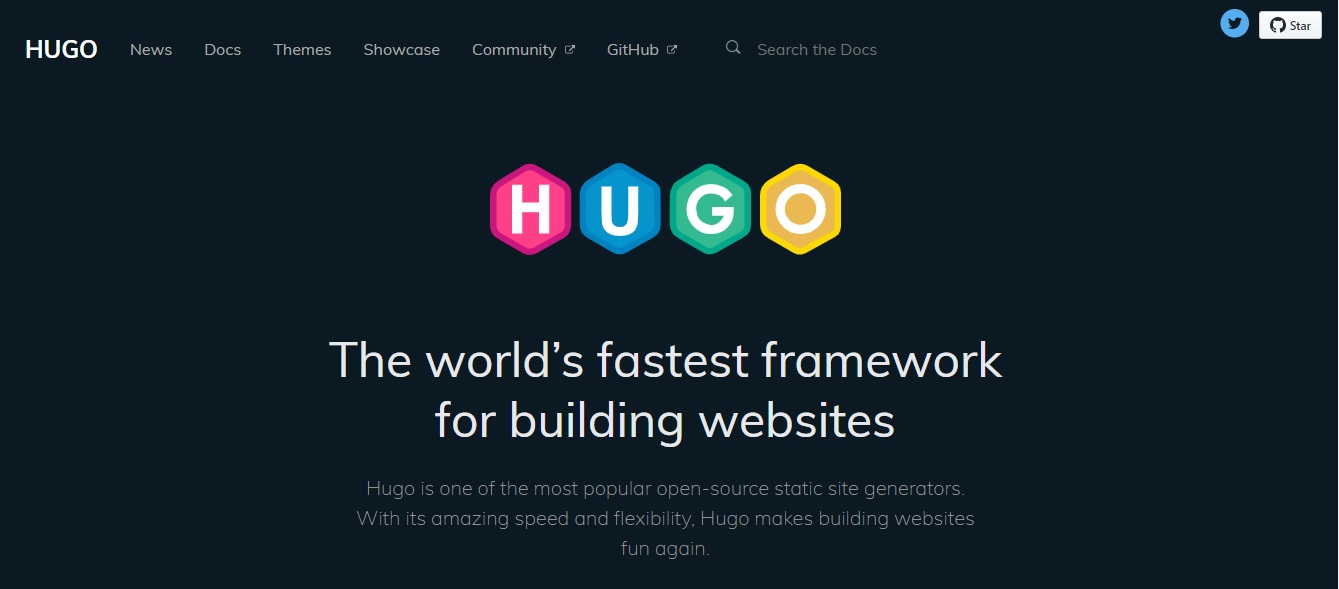
Features:
- Extremely fast build times
- Setting up customer appointments and reminders
- Support for configurable taxonomies, categories, and tags
- Supports multi-language sites
- An icon depicting custom outputs
- Pretty URLs support
- Integrated Google Analytics support
- Automatic RSS creation
- Output content in multiple formats such as JSON or AMP
- Host on any server or your favorite CDN.
- Cross-platform installation on macOS, Linux, Windows
- Automatic table of contents generation
- Dynamic menu creation
Django is a free and open source website builder and a content management system written in Python. It uses the Django web framework, and it is licensed under BSD 3. It allows users to migrate from Wordpress or Drupal. This free website builder software offers ready-to-use free Django templates. It allows free unlimited projects that can be viewed from a single dashboard.
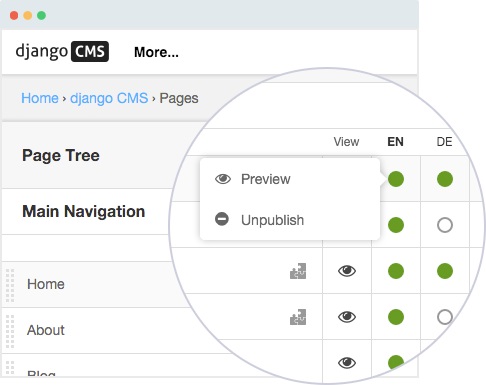
Features:
- Multi-site capability
- SSL and LDAP authentication
- Controllable backup
- Customizable WYSIWYG editor
- Spell Checker
- Versioning, undo changes
- Drag & Drop content management
- Mass upload of images/documents
- Automated image editing (e.g., scaling)
- Free structuring (menus, categories)
- Searchable assets (PDF, metadata)
- HTML5/CSS3 capable
- Newsletter and Email Campaign Management
- Forms builder
- Polls, surveys, Quiz tool
Publii is a free and open source website builder software that lets you build unlimited websites. It runs on Windows 7, 8, and 10 (64 bit), macOS, and Linux 64 bit. It keeps your site updated, and therefore search engines will find your site easily. It has support for data markup, metatags, graphs, accelerated mobile pages (AMP), file compression, and auto-generated Sitemap.
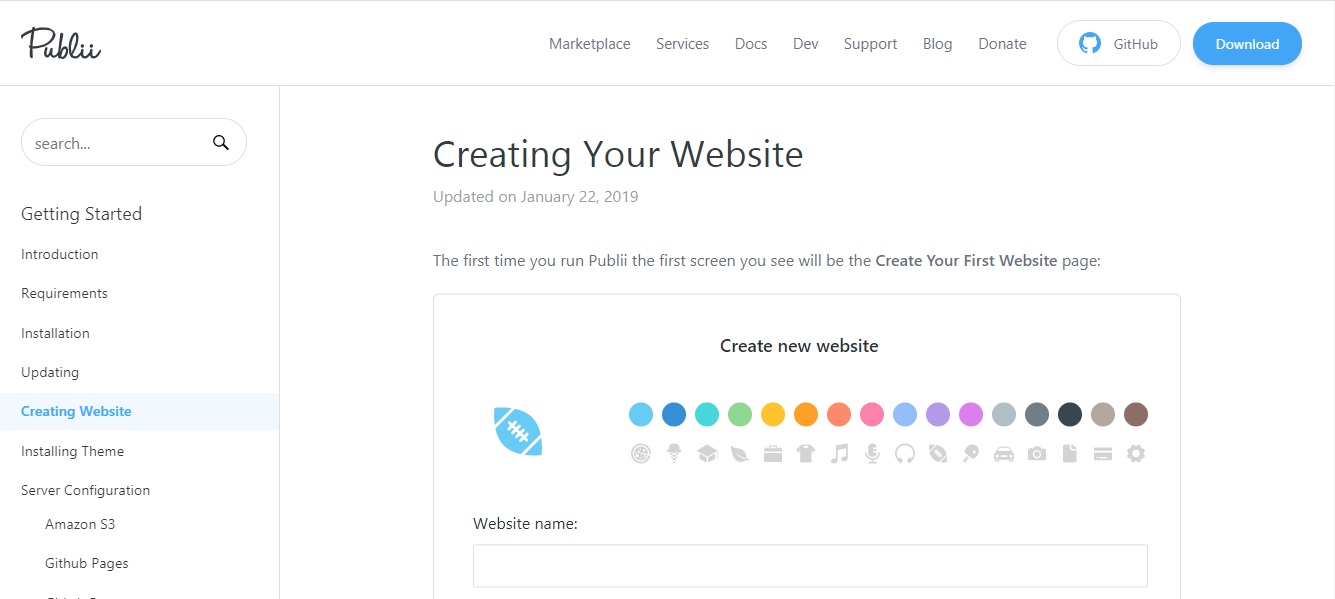
Features:
- Websites are ultra-fast
- Websites built through Publii are very difficult to hack
- Craft a modern site with Google AMP technology
- Manage your websites anywhere.
- Share your site via Dropbox or other cloud storage
- Let multiple users update your content
- Your SEO is in good hands
- Publii has flexible options for search engine rankings
- Intuitive user interface
- Built-in WordPress Importer- transfer your blog posts, pages, and categories
- Easy post editor that simplifies text styling
- Add images, tags and other content
- Live previews available
Joomla is a free and open-source website builder software. Developed by Open Source Matters, Inc. Joomla is written in PHP, stores data in a MySQL, or PostgreSQL database. Over 8,000 extensions are available through its Directory. It is capable of making corporate websites, blogs to e-commerce websites. Joomla is supported by a large developer community.
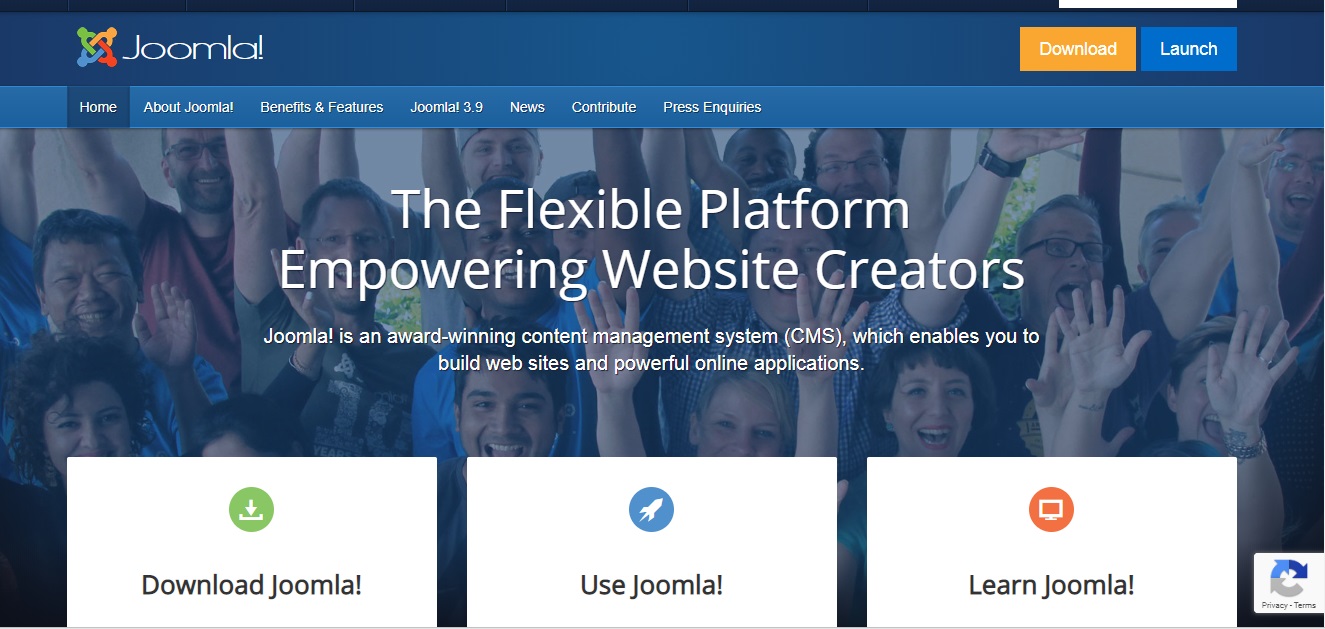
Features:
- Easily redirect URLs when needed.
- Add contact forms
- Create an RSS feed from your content
- Sent messages in between administrators
- Allows you to render HTML
- Template assignment
- Responsive designs
- Publishing tools available
- WYSIWYG editor
- Content versioning
- Add, manage, and organize your articles.
- Drag & Drop image
- Media manager to upload and maintain images
- Update Joomla with one click.
- Keep your extensions up to date
- Install extensions without leaving your backend
Subrion is a free and open source website builder software that is built on PHP/MySQL. It is used to build websites and mega portals. It comes with a powerful admin dashboard with a multilingual CMS. It comes with numerous free templates and inbuilt extensive blog functionality. Users can create more extensions using the advanced API framework.
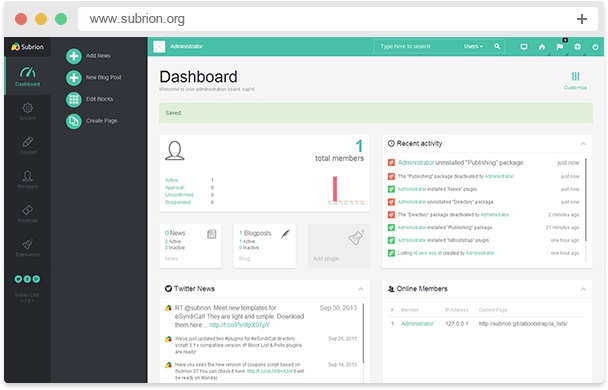
Features:
- A plentiful supply of free plugins & templates
- Admin Dashboard
- Inclusive SEO tools
- Create Sitemap and optimize the title tag
- Meta keywords & meta descriptions
- Mobile friendly
- See website activity, and take control
- User management
- Built-in user management functionality
- Easy core updates
- Apply minor and security updates automatically
- Easy content management
- Use WYSIWYG editors
- Control every page, menu, or block of your website
- Drag and drop approach
- Get quick access to the most frequent tasks
- See your online visitors in real-time
You can select from the above list of 8 best free and open source website builder softwarefor making beautiful and robust websites. If you still need a more comprehensive website builder software with powerful functionalities, then you can go with the most popular website builder-Wordpress. Wordpress needs no introduction. One can have an idea of its massive reach with the fact that WordPress alone powers more than 35% of the web. What makes Wordpress interesting is thata company that powers billions of dollars’ worth of websites has no CEO. It is run by volunteer developers around the world in a democratic manner. Around 500+ websites are built every day using WordPress. Let us see its features in detail:
Wordpress
Wordpress is a free and open source website builder software and a robust content management system. WordPress is a software designed for accessibility, security, performance, and ease of use. It requires a minimum set up and has powerful features for building high-quality websites. A large community of people collaborates to run Wordpress. It lets users build everything from simple websites to complex portals. This free website builder comes with thousands of plugins that integrate to extend its l functionality.
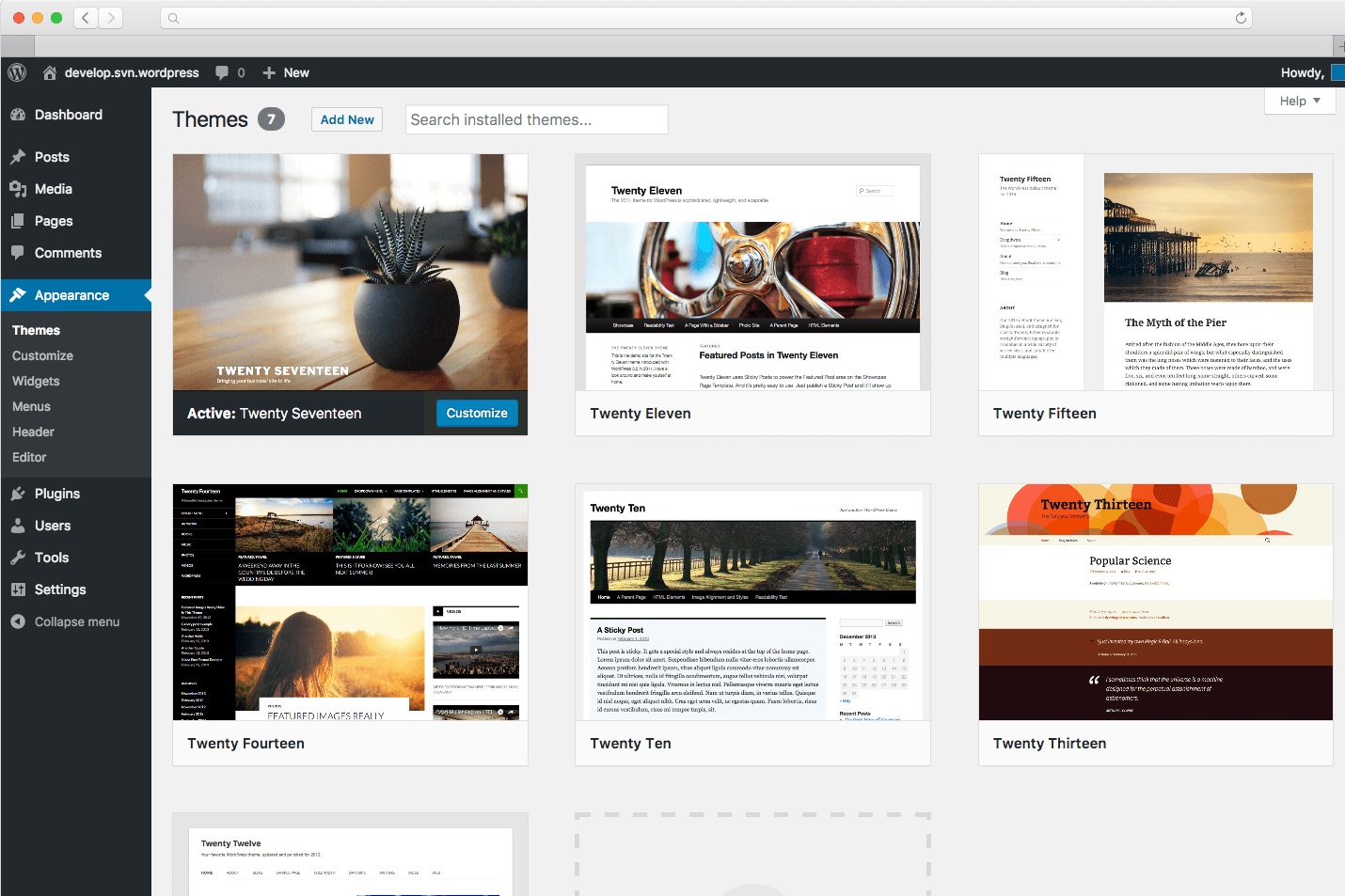
Features:
- It has a very simple and intuitive website building platform
- Create any type of website: a personal blog or website, a business website, a professional portfolio, a magazine or news website, and many more.
- A plugin directory for adding features such as social media, spam protection, calendars, forms, etc.
- Use free website themes, and extend it with plugins.
- Create Posts and Pages
- Create drafts, schedule publication
- Have a variety of contributors/authors to your website
- Make your content public or private
- Secure posts and pages with a password.
- Easily upload images and media to WordPress
- Drag and drop your media, Add alt text and captions
- Available in more than 70 languages
- WordPress is licensed under the GPL
- Extensibility to create themes
- The latest WordPress version 5.4 “Adderley,” (March 31st, 2020) has added new blocks, faster editor speed and cleaner UI.
Conclusion
Your business can have a strong social media presence, but for robust brand building and exceptional customer experience, a website is a crucial entity. Moreover, newsletter and blog subscription traffic comes more from regularly updated websites. Thus, a well-maintained website is a value proposition for the sustainable growth of your business.
The free and open source website builder software consists of all features that help to build industry-grade business websites, blogging websites, and landing pages.
Before choosing the right website builder software, keep the following 4 points in mind:
- Only select a website builder that allows you to add external plugins
- Check if the website builder software can make websites that are viewable on all devices- tablets, mobile, computer, etc.
- Select a website builder that provides you with security options to safeguard your website from spams, virus attacks, malicious software, etc.
- Choose the website builder that can integrate with Google Analytics to provide you valuable web insights
Businesses, bloggers, and freelancers can choose from any of the free and open source website builders software discussed in this article.
We will appreciate it if you provide your valuable inputs in the comments section below. You can also share your feedback with us if you have utilized any of the free and open source website builder software mentioned above.
If you wish to see the features of anyother software or any other software category other than the best free website builder software, then do look at our software directory.








